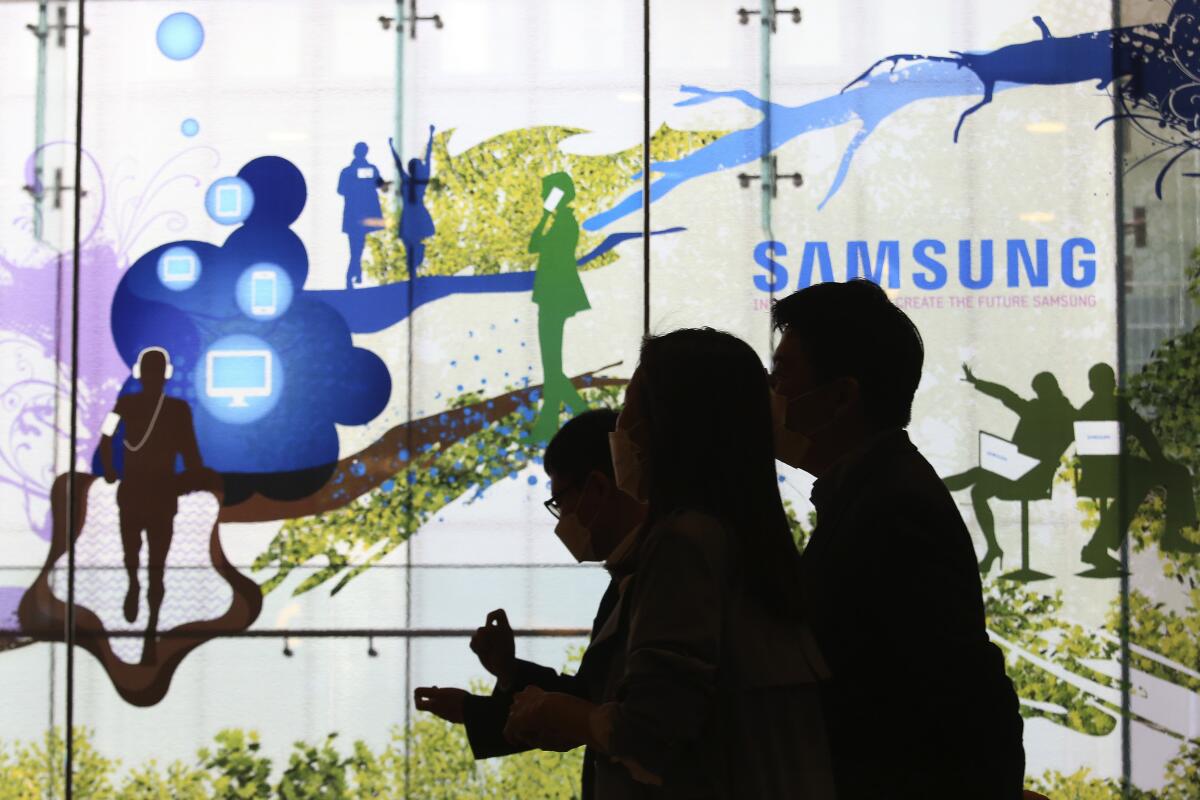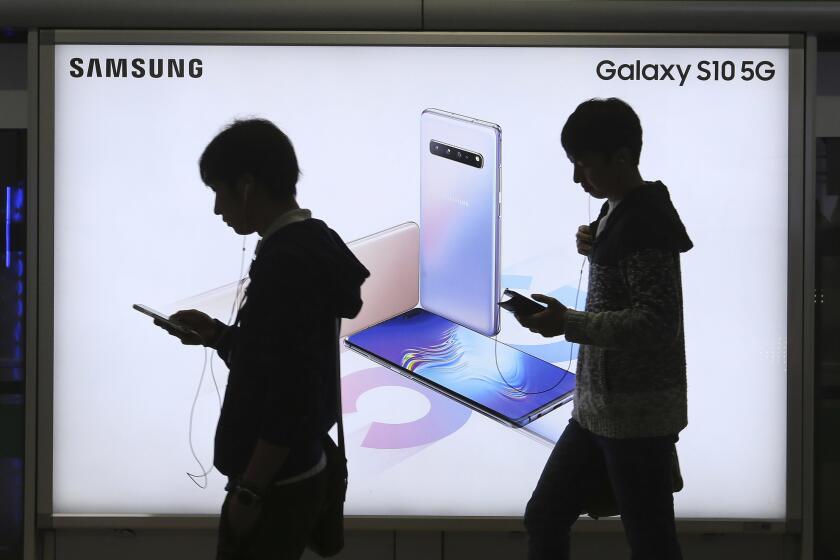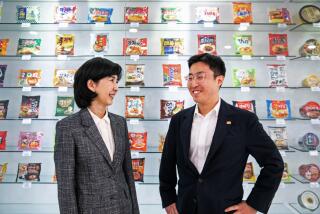Picasso, Monet, Dali: Samsung heirs donate huge art trove to offset $11-billion tax bill

- Share via
SEOUL — Samsung’s founding family will donate tens of thousands of rare artworks, including Picassos and Dalis, and give hundreds of millions of dollars to medical research to offset a massive inheritance-tax bill following the death last year of company Chairman Lee Kun-hee.
The Lee family, including his wife and three children, expects to pay more than $10.8 billion in taxes related to inheritance, which is more than half the wealth Lee held in stocks and real estate, Samsung said Wednesday. This would be the largest such tax payment in South Korea and more than three times the country’s total estate tax revenue for last year.
The family plans to divide the payment in six installments over five years, with the first payment this month.
“It is our civic duty and responsibility to pay all taxes,” the Lee family said in a statement. They had until Friday to report the extent of the inheritance and payment plans to tax authorities.
Raising cash for the tax payment is crucial for the Lee family to extend its control over Samsung’s business empire, which extends from semiconductors, smartphones and TVs to construction, shipbuilding and insurance. Some analysts say the process could result in a shakeup across the group.
The late chairman, who died in October, owned 4.18% of Samsung Electronics, which is one of the world’s biggest makers of computer memory chips and smartphones, but also held stakes in Samsung affiliates that collectively owned a larger share than his in the electronics unit, the conglomerate’s crown jewel. This was part of a complex shareholding structure that has allowed Lee and his family to exert broad control over the group.
There are growing signs that Samsung is finally poised to make meaningful inroads in 5G, boosted by the confluence of rollouts across the world and intensifying pressure from governments of U.S. allies to block Huawei, the sector’s biggest player, from their networks.
In Wednesday’s news release, Samsung did not mention how Lee’s wife and children would split his assets between them, and there’s speculation that they haven’t yet reached a final agreement.
Most market analysts believe that Lee’s shares will be distributed in a way that would strengthen the leadership of his only son and corporate heir, Lee Jae-yong, who is currently serving a prison term for bribery and other crimes but who remains the de facto chief of Samsung Electronics. The elder Lee’s other children are Lee Boo-jin, CEO of Samsung’s Shilla luxury hotel chain, and Lee Seo-hyun, who heads the Samsung Welfare Foundation.
Giving away the late chairman’s vast collection of masterpieces could help mitigate the tax bill because his family wouldn’t need to pay taxes on donated artworks.
The family plans to donate 23,000 pieces from Lee’s personal collection to two state-run museums. They include old Korean paintings, books and other cultural assets designated as national treasures, and modern Korean painters such as Park Soo-keun and Lee Jung-seop. There are also works by Marc Chagall, Pablo Picasso, Paul Gauguin, Claude Monet, Joan Miro and Salvador Dali, Samsung said.
Unhappy with LACMA plans for a new building and its permanent collection, the Ahmanson Foundation ends the art gift program it started in 1972.
The National Museum of Modern and Contemporary Art said the 1,488 pieces it received constituted its biggest private donation. The works included Lee Jung-seop’s “Bull,” Dali’s “Family of Marsupial Centaurs,” Monet’s “Water Lily Pond (Le Bassin aux Nympheas),” and Chagall’s “Red Bouquet With Lovers (Les Amoureux aux Bouquets Rouges).”
The National Museum of Korea will receive about 21,000 pieces from Lee’s collection of Korean traditional art, including paintings, ceramics and sculptures.
Hwang Hee, South Korea’s culture minister, said some of the donated art would be put on public display starting in June. He expressed “deep gratitude” to the Lee family for “enriching” the country’s cultural assets, but he sidestepped questions on whether he thought Samsung was trying to create a positive atmosphere for Lee Jae-yong to be pardoned.
The Lee family will also donate $900 million to help fund infectious-disease research and treatment for children with cancer and rare illnesses.
News Alerts
Get breaking news, investigations, analysis and more signature journalism from the Los Angeles Times in your inbox.
You may occasionally receive promotional content from the Los Angeles Times.
About half of that money will be used to help finance the establishment of a new 150-bed hospital providing specialized treatment for infectious diseases. Experts had raised the need for such facilities equipped with negative pressure rooms and other advanced systems following the emergence of COVID-19.
About $267 million will go into a decade-long program with the Seoul National University Children’s Hospital to help families pay for the treatment of children with cancer and rare diseases and support clinical trials and drug development.
“Members of the [Lee family] hope to honor the life of the late Chairman Lee and his commitment to corporate citizenship and co-prosperity by giving back to communities,” Samsung said.
Before his death, Lee was credited with transforming Samsung Electronics from a small television maker into a global electronics giant. But his leadership was also marred by corruption convictions that highlighted the traditionally murky ties between South Korea’s family-owned conglomerates and its politicians. He had been hospitalized for years following a heart attack in 2014.
More to Read
Sign up for Essential California
The most important California stories and recommendations in your inbox every morning.
You may occasionally receive promotional content from the Los Angeles Times.











